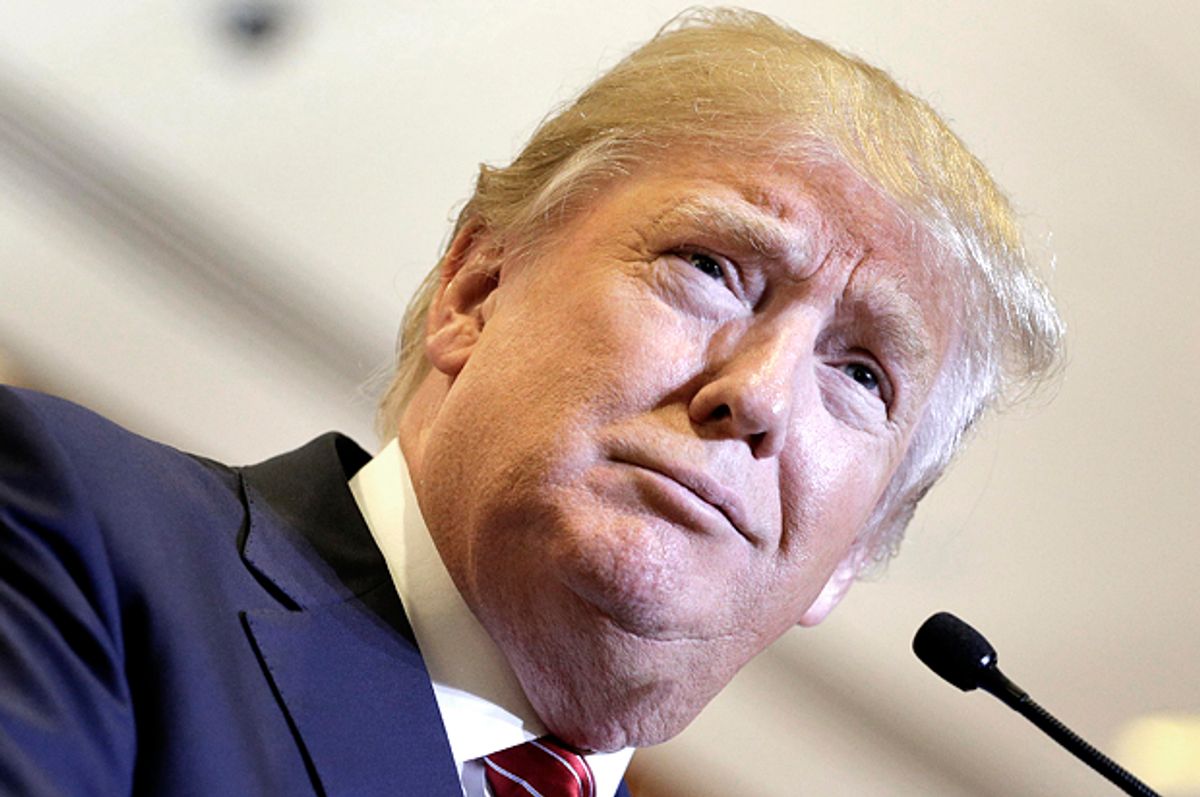New polling numbers suggest Donald Trump is closing the gap with Hillary Clinton. The Washington Post/ABC poll released Saturday, for example, shows Trump favored by 46 percent among registered voters, with Clinton at 44 percent. However, when asked if the election was held today and the choice was between Trump and Clinton, 48 percent said Clinton compared to 42 percent for Trump.
It's unwise to dismiss these head-to-head polls entirely. While it's still far too early for numbers like this to matter, the trend lines are instructive. Since March, we've seen an eleven-point swing in this same poll. Trump has gained six points and Clinton is down five points. This is likely a result of the GOP primary race concluding as much as anything else. Although it's been awkward and slow, Republicans are rallying around their presumptive nominee. Meanwhile, the Democratic race may be over but it feels as contentious as ever, with Sanders digging in for the final primary contests.
But national polls overlook a crucial fact: Donald Trump has virtually no ground game in the so-called battleground states, where general elections are decided. Trump bulldozed his way through the Republican primaries with a broad media-centric strategy. He ignored retail politics and analytics and all the things we assume are necessary to win elections. That worked with a receptive Republican electorate, but it's far riskier in a general election.
Consider Florida. An indispensable swing state, it's near-impossible to acquire 270 electoral votes without winning Florida (a Republican hasn't lost Florida and won the presidency since 1924). General elections are about mobilizing the base, and that requires a robust ground game. Clinton already has a campaign headquarters and a sprawling operation established in the Sunshine State. The Trump campaign, according to this NBC news report, has yet to develop a strategy there. Indeed, Trump has no real presence in the state apart from his business interests.
In Ohio, another critical swing state, the story is the same. The Wall Street Journal reports that “Mr. Trump doesn't have any general-election staff in the state, and senior aides in New York and Washington haven't made contact with the state Republican Party. Efforts to recruit the state's experienced operatives who helped elect Gov. John Kasich have so far been unsuccessful.” “There's no one in a senior or midlevel position in the campaign in Ohio or in any of the states where we had staff who would or will be going to work for Donald Trump,” said John Weaver, Kasich's top strategist during his presidential campaign.
At the same time, the Clinton campaign has a team of full-time staffers on the ground in Ohio leaning on the party's institutional support base. Offices are being established in Columbus and thousands of volunteers are being recruited to work on behalf of the presumptive Democratic nominee. The winner of Ohio has won every election since 1964. That Trump's operation is scarcely off the ground at this point is a very bad sign for the GOP.
Trump is also well behind Clinton in terms of general infrastructure. As Politico points out, “Through the end of last month...Trump's campaign spending was less than a third of Clinton's ($57 million to $182 million) and Trump had assembled a staff about one-tenth the size of hers (70 employees to 732), and spent less on offices (Trump last month paid $101,000 in rent vs. $328,000).” It's hard to imagine Trump shrinking the logistics gap, particularly as he struggles to unite the GOP donor class behind his campaign. There just isn't enough time to build a national network comparable to Clinton's at this stage.
Organization will matter in November. To what extent it will matter remains an open question, but there's no doubt it will impact turnout in swing states. Without an active ground game and sophisticated targeting strategies in places like Florida, Ohio, Pennsylvania and Michigan, Trump will be at an enormous disadvantage. I'm done saying he can't win, but if his Twitter-based primary strategy works in a general election, every rule of presidential politics will be erased.
But that's clearly a bet Trump is willing to make.

Shares